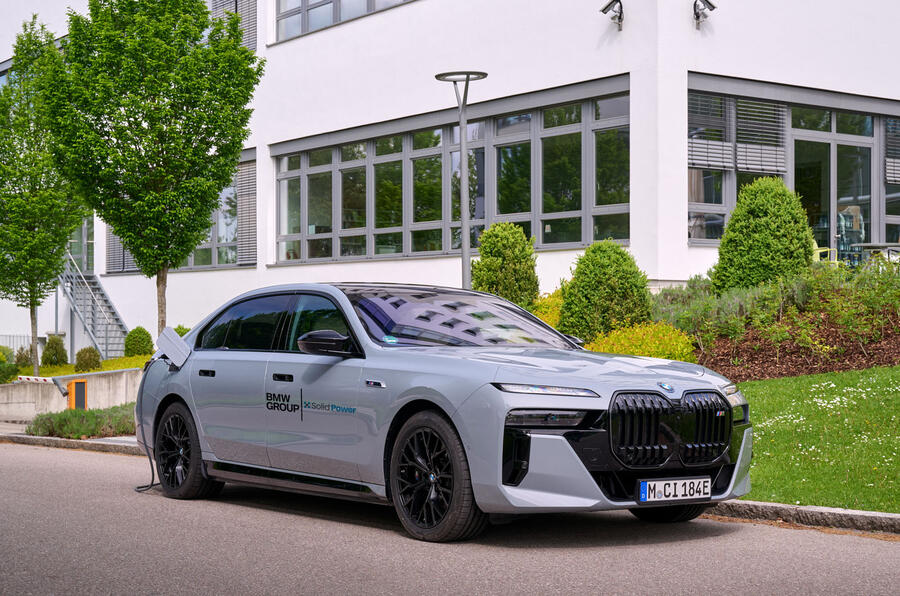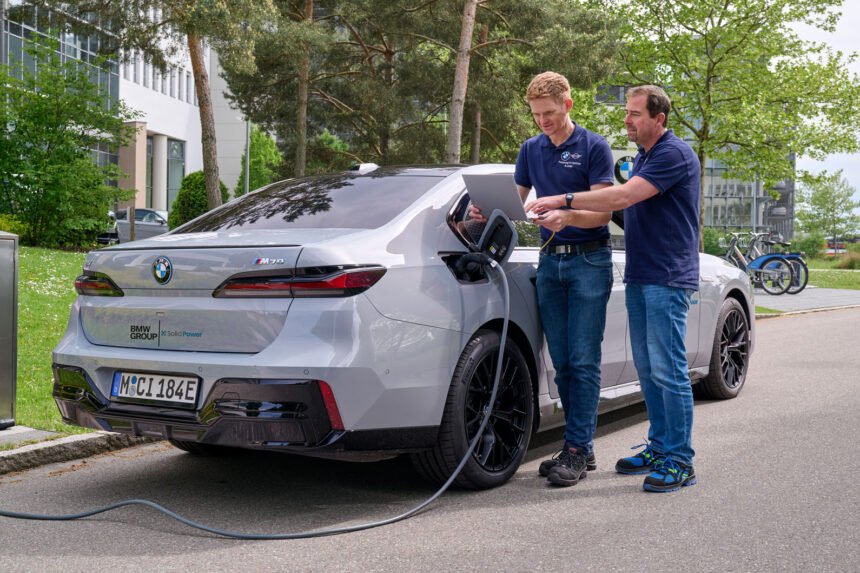BMW Testing Solid-State Battery Technology on BMW i7 Prototype
The BMW Group is making significant strides in the development of next-generation battery technology by fitting a BMW i7 prototype with a solid-state battery. Partnering with Solid Power, the all-solid-state battery (ASSB) pack offers higher energy density in a smaller and lighter package compared to traditional lithium-ion batteries.
This innovative technology, known as ASSB, utilizes cells that are more compact and efficient, allowing for increased energy storage capacity within a smaller footprint. The prototype pack maintains the current Gen5 architecture’s construction principles, using prismatic cells in modules to accommodate Solid Power’s ASSB cells.
By adapting existing platforms to incorporate solid-state batteries, BMW aims to accelerate the introduction of this cutting-edge technology to the market. This move suggests that BMW’s current platforms could be easily modified to accommodate next-generation battery technologies, potentially expediting the adoption of solid-state batteries in electric vehicles.
In a statement earlier this year, Martin Schuster, BMW Group’s vice-president of next-generation battery tech, indicated that the group was eight years away from requiring a solid-state battery option for its EV lineup. While acknowledging the potential of solid-state battery technology, Schuster emphasized the ongoing focus on advancing lithium-ion battery technology, citing the need for further development in the current battery technology landscape.

Despite the continued emphasis on lithium-ion batteries, BMW’s recent integration of solid-state battery technology on the BMW i7 prototype showcases the company’s forward-thinking approach and commitment to exploring new battery cell technologies. Schuster noted, “We are continuously advancing the development of new battery cell technologies,” highlighting BMW’s technology-open mindset and dedication to innovation.
The BMW i7 test vehicle will undergo extensive testing in the coming months to gather data on temperature regulation and operating pressure, furthering the company’s research and development efforts in the realm of advanced battery technologies.







